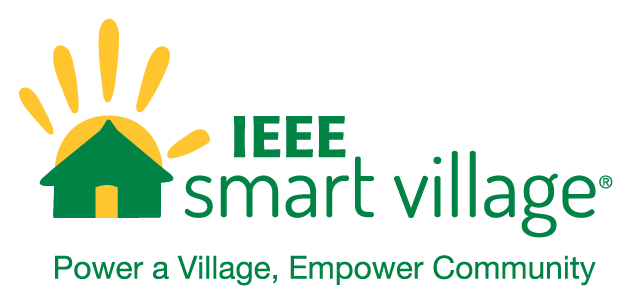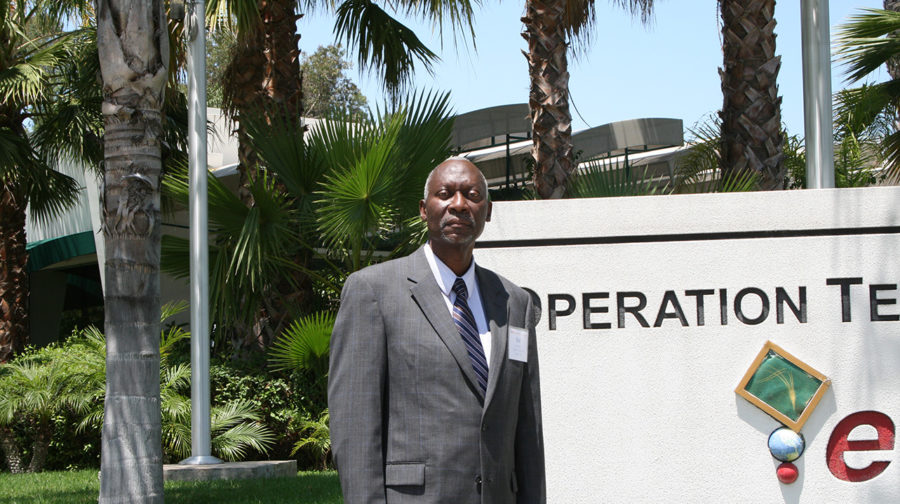Testimonial from Bai Blyden: Empowering Africa
“Worrying about Africa is the family business,” says Bai Blyden, an IEEE Smart Village Ambassador and Mentor whose life revolves around solving the energy needs of this vast continent.
Blyden grew up rooted in the legacy of his great grandfather, human rights advocate and political philosopher Edward Wilmot Blyden, considered by many to be the Father of Pan Africanism, and that of his father, Edward Blyden III, who played a key role in winning Sierra Leone’s independence from Great Britain.
The elder Blyden, who devoted his life to “uplifting the lives of black people” and whose work in the mid-to-late 1800s inspired African consciousness movements all over the world, passed on to his grandson and his great grandchildren a legacy of putting “others before self.” So powerful was his influence that Bai and his seven siblings all embrace a commitment to social change as part of their own life’s work.
“Every one of us has a different discipline,” he says, including engineering, history, geology, biology, social activism and journalism. “But wanting to give back, we all inherited that.”
“Yet there was never any real pressure on us to excel,” he explains. “My father was not that kind of a teacher.” Rather, Edward III exposed the family to many cultures and societies through their travels (they lived in the U.S., Nigeria, Sierra Leone and Russia during his youth) and encouraged open discussion of a wide range of religious and cultural beliefs and ideas. “We talk about everything in our family,” Bai says.
Bai remembers his father driving him around many poor villages in Nigeria, where people’s only source of water was what they could carry on their heads. “There but for the grace of God go I,” he used to think, voicing a family mantra no doubt first invoked by his great grandfather, who was born a free black man on St. Thomas, Virgin Islands at a time when so many were enslaved.
Bai was taught to regard others — all others — as his equals. Consequently, he developed a strong belief that anything he had in life, be it a pair of shoes or an education, should be equally accessible to all.
From the age of three, Bai also developed a deep love and admiration for anything that had to do with dynamics, starting with airplanes and quickly expanding to include all things Batman. “I actually took him seriously,” he says now, reflecting back on his childhood. “He was the more believable one of all the superheroes. He didn’t fly. He was an engineer.”
Bai would become one as well, studying Power Engineering at the Moscow Energetics Institute, where he specialized in Power Plant, Power Systems and Industrial Distribution systems Design and Development, graduating with a master’s degree in 1979.
“Power is the most transformative form of energy there is,” he says. “There’s a great need for it. I was advised by the rector of the Institute, who said, ‘If you stay with design, you’ll always be useful. Not everyone can do that.’”
That advice resonated strongly with Bai, whose desire to serve others, passion for engineering and legacy of devotion to improving the lives of people in Africa dovetailed into what would become a lifelong focus on how to most effectively bring electric power to developing nations.
“The last century has demonstrated that every facet of human development is woven around a sound and stable energy supply regime,” he wrote in a paper for the IEEE Power & Energy magazine in 2005, in which he outlined efforts by the New Partnership for Africa’s Development (NEPAD) to develop an integrated African grid. “Indeed, electricity is the engine of economic growth and development,” he wrote, noting that the overwhelming majority of the population is not connected to any grid, a major contributing factor to the continent’s underdevelopment.
Bai, today a Senior Engineer at Southern Company, has worked on more than 40 major and minor power plant projects throughout his career, and been published widely in international, peer-reviewed journals. He has done extensive research “in the African energy space,” developing a model known as the Knowledge Engine, which focuses on accelerated development and knowledge transfer, particularly in the energy field.
“One of the outcomes of my research in the African energy space was the realization that there was a need for accelerating training skills and knowledge transfer, as we are very much in the information age,” he says. The Knowledge Engine recognizes the need for a standardized curriculum and online communities of people with expertise in the field to digitally share knowledge with universities and technical schools in Africa, allowing local people to obtain the training they need to further develop renewable energy micro grids and regional power pools, now in the nascent stage.
Such groupings of skilled technologists and other supporting disciplines, says Bai, would function like an “energy Peace Corps” in Africa, bringing much-needed power to remote villages now dependent on kerosene and candles. He has been promoting the model to celebrity philanthropists with an interest in global development and has begun discussions with the White House Office of Science and Technology Policy to explore the possibility of using it in conjunction with President Obama’s Power Africa program and the Global Connect initiative.
For years, Bai’s research and interest in the development of an integrated energy grid in Africa was focused at the macro level. But about five years ago, he ran into a group doing work at the micro-realization level in Africa that set off light bulbs in his head and changed his way of thinking.
At the 2011 inaugural Global Humanitarian Technology Conference in Seattle, hosted by the IEEE Foundation and the United Nations, Bai met representatives from IEEE’s Smart Village program. Smart Village provides innovative, sustainable electrical systems and start-up training and support to energy-deprived communities in the poorest nations of the world. For example, it can provide LED lights bulbs and battery packs with solar voltaic chargers to families so they can charge cell phones and provide lighting for children to do their homework at night, replacing dangerous kerosene lamps that cause health problems.
At first, Bai was skeptical. He thought, “Here we go again, people thinking they can solve Africa’s problems with a project. I was used to thinking bigger than that, about things like combined cycle gas turbine plants, nuclear, small to large hydro power plants. Then I saw the heart that went behind the concept, transforming a guy’s life and going after the lowest guy on the totem pole, really making a difference in his life. Their idea of reaching out to the most disadvantaged around the world using electricity, education and communications to empower people really resonated with me and was philosophically in sync with much of what I’ve been writing about for the last 33 years.”
Smart Village, he realized, was his “energy Peace Corps” in action.
So Bai joined the IEEE Smart Village and now serves as a Smart Village Ambassador and Mentor. His role is to identify where opportunities exist, finding the villages and towns that most need energy assistance. He provides technical direction and assistance with fundraising as well.
What’s next for a man whose life’s goal is to see Africa fully energized? He’d like to see the Knowledge Engine “turned on,” incorporating his model into the work being done by Smart Village and other related programs, such as Power Africa and Global Connect, so that university campuses can develop the 21st century entrepreneurs and technologists needed to carry this work to fruition.


